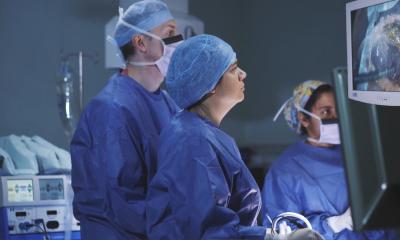
Image source: Sasin Tipchai on Pixabay
News • False appendicitis alarm
Study reveals many unnecessary appendix surgeries in children
Surgery for appendicitis is the most common emergency operation in children. A new study has found that the UK has the highest reported national rate of ‘normal appendicectomy,’ where children undergo surgery for suspected appendicitis but laboratory examination of the removed appendix finds it to be normal.
Although most children who are misdiagnosed as having appendicitis improve without further treatment, but the unnecessary surgery can be stressful for children and their parents, and can lead to postoperative complications. Surgical experts at the University of Birmingham led the study on behalf of the West Midlands Research Collaborative and published their findings in The Lancet Child & Adolescent Health.
Our study found that overall the diagnosis is wrong for one in six children who undergo appendicectomy, and a normal appendix is removed. This places an unacceptable burden on both children and their carers
Aneel Bhangu
This study included children aged 5 to 15 years with suspected appendicitis from across 139 hospitals in the UK and Republic of Ireland. The study captured data from both district general hospitals and specialist paediatric hospitals in every UK region, making the findings generalisable across the UK. Mr. Aneel Bhangu, Senior Lecturer in Surgery at the University of Birmingham and Consultant Colorectal Surgeon at University Hospitals Birmingham commented: “Appendicectomy is the most common emergency operation in children. Our study found that overall the diagnosis is wrong for one in six children who undergo appendicectomy, and a normal appendix is removed. This places an unacceptable burden on both children and their carers.”
Overall, only around a third (34.5%) of children admitted to hospital with suspected appendicitis actually underwent appendicectomy. However, children who do undergo surgery have high normal appendicectomy rates: 11.9% in children aged 5-10 years, 16.0% in boys ages 11-15 years, and 22.4% in girls aged 11-15 years.
Projecting these figures nationally, of the 28,700 UK children who are admitted to hospital with suspected appendicitis each year, 9,900 undergo appendicectomy, and 1,600 have negative appendicectomies.
Researchers highlight that urgent improvements are needed to reduce the number of patients undergoing unnecessary surgery. They propose that all children presenting with suspected appendicitis should be routinely risk scored using the Shera score, which they found to be the best performing risk score for appendicitis. The study suggests that most low-risk children can be discharged early; over half of these patients have non-specific abdominal pain, and most other diagnoses do not require any specific treatment.
Experts all for better ultrasound availability
The researchers recommend that to ensure patients receive the right diagnosis all medium-risk and high-risk patients urgent action is needed to improve the quality of ultrasound services. Ensuring that all medium-risk and high-risk children undergo high-quality ultrasound imaging prior to surgery could reduce unnecessary surgery and produce an overall saving for the NHS of £4.4 milion per year.
Dr. Dmitri Nepogodiev, one of the study leads, commented: “It’s important that children receive the right diagnosis before a decision is made to operate. Ultrasound scans have the advantage that unlike CAT scans they do not expose children to radiation. They have been found to be an effective diagnostic tool in other countries, but we found that in the UK ultrasound is frequently inconclusive. Hospitals should ensure 7-day-a-week availability of ultrasound done by staff specially trained to assess for acute appendicitis in children.”
Source: University of Birmingham
16.02.2020











